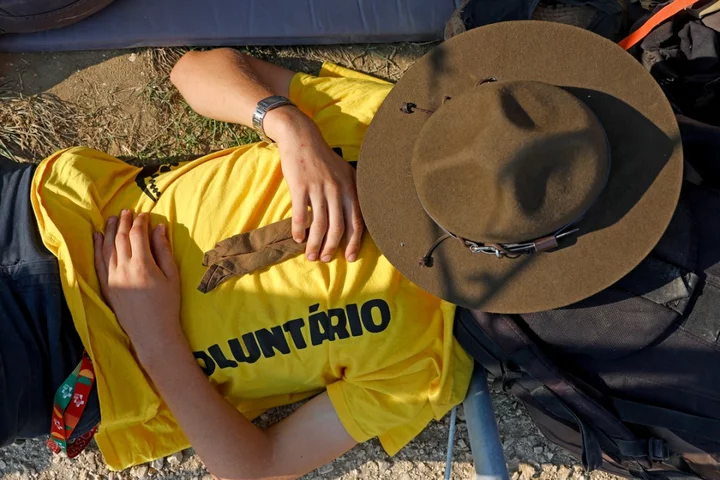
Hitting snooze button can actually benefit brain sometimes, study suggests
Hitting the snooze button on the alarm clock once in a while might actually support the brain’s process of waking from deep sleep, according to a new study. People sometimes want to go right back to sleep even after the alarm goes off in the morning, using the snooze button in clocks and cell phones. Decades of previous research suggested that hitting snooze can have negative effects, both on sleep and the brain’s ability to wake up, but until now there hasn’t been any direct evidence of this, say scientists. The new study, published in the Journal of Sleep Research, assessed how common snoozing is and what effects this behaviour has on sleep, sleepiness, mood, and the brain’s cognitive abilities. Researchers found that those who snooze on an average sleep slightly shorter and feel more drowsy in the morning compared to those who never snooze. But they also saw that there were no negative effects of snoozing on the release of the stress hormone cortisol, mood, or sleep quality throughout the night. In the study, 1732 individuals answered questions about their morning habits, including how often they hit the snooze button with many – especially young adults – reporting that they use the alarm feature regularly. The most common reason for snoozing, according to participants, is feeling too tired to get out of bed when the alarm goes off. In another small follow-up experiment, 31 regular snoozers spent two nights in a sleep lab in order to measure their sleep in more detail. On one of the mornings, they were allowed to snooze for 30 minutes, and on the other, they had to get up right when the alarm went off. While in the first case, participants’ sleep was disturbed during the half hour of snoozing, most of them still got more than 20 minutes of sleep – meaning that their total night’s sleep was not affected much. In the snooze condition, no one had to wake up suddenly from deep sleep, and the snoozers performed a bit better on cognitive tests right upon waking. There were also no clear effects of snoozing on mood, sleepiness, or the amount of cortisol in the saliva. The results hint that half an hour of snoozing may not have negative effects on night sleep and could have some positive effects like a decreased likelihood of waking from deep sleep. However, researchers caution that the second experiment was small and only included people who are regular snoozers who find it easy to go back to sleep after each alarm. They say snoozing is most likely not for everyone. Jennifer Kanaan from the University of Connecticut in the US, who is another sleep scientist unrelated to the study, said the latest findings should be interpreted with caution as it could send the wrong message to people. “If you’re coming in and out of sleep for 30 minutes, after the alarm goes off the first time, you’re costing yourself 30 minutes of uninterrupted, quality, restorative sleep,” Dr Kanaan said in a statement. Instead of trying to figure out how to manipulate our alarm clocks, she says people should make a consistent good night’s sleep a greater priority and be less reliant on snooze buttons. “Simply put, instead of hitting the snooze button they should get more sleep,” Dr Kanaan said. Read More Study reveals why millions of women wake up at 3.29am Consistent lack of sleep may increase risk of future depressive symptoms – study Breakthrough study allows scientists to communicate with people as they sleep How to support a child with a stammer ‘I lost nearly a stone on Ozempic, but now it’s run out what am I to do?’ Miriam Margolyes now has part of a cow’s heart as she opens up about health
2023-10-20 14:20
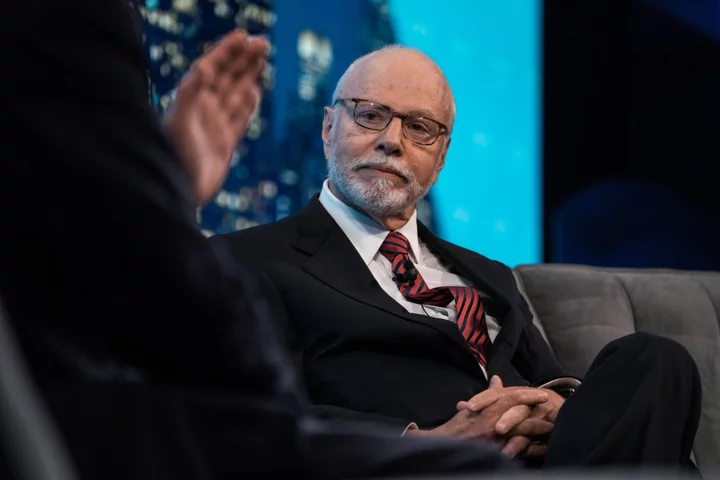
C4K Latest: Tudor Investment Corp. Manager Pitches Live Nation
Tudor Investment Corp. senior portfolio manager Emil Dabora pitched an investment in Live Nation Entertainment, citing explosive growth
2023-10-20 01:15
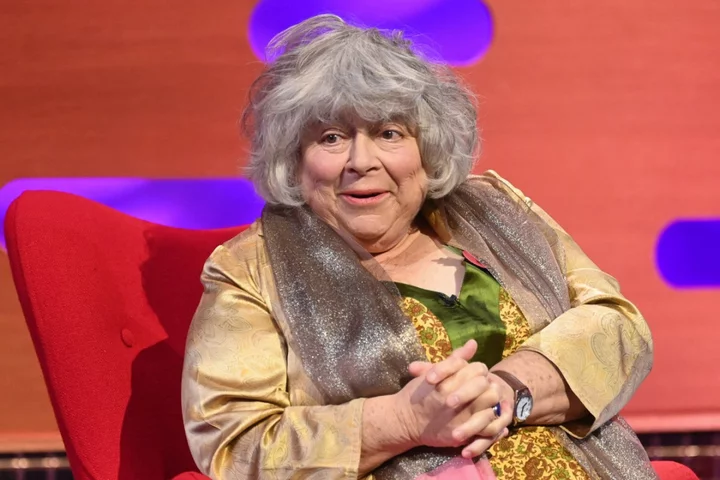
Miriam Margolyes now has part of a cow’s heart as she opens up about health after surgery
Miriam Margolyes has shared a health update after heart surgery, revealing that she now has part of a cow’s heart. Back in May, the Harry Potter actor underwent a minimally invasive procedure called a Transcatheter Aortic Valve Implantation (TAVI) to replace a narrow aortic valve after it fails to open properly. Appearing on the Table Manners podcast, Margolyes, 82, discussed the heart operation with hosts Jessie Ware and her mother, Lennie. “I’ve got a cow’s heart,” Margolyes revealed. “Well, not the whole heart. I’ve had an aortic valve replaced by a cow’s aortic valve.” Jessie asked if that was “common”, with Margolyes joking: “I think it’s rather refined, actually… I don’t know how common it is, I’d never heard of that operation. But it saves you from having open heart surgery, which would be infinitely more invasive.” Further discussing the surgery, Margolyes explained: “They made two little holes in your groin, one in each groin. and then they shoved this thing through. And I don’t know how they pull it up but they sort of pull it up with strings, into your heart. “And then when it comes to the point when it’s in your heart, they pull a little string and it goes pow! And lo and behold, your artery or your aortic valve is shoved unceremoniously to the side, and the cow’s aortic valve says, ‘Moo, I’m here.’ It’s rather amazing.” Margolyes also shared that she would “probably” use a wheelchair soon due to her bad back, but had “just sort of accepted” that it was going to be necessary. On her new fandom and being seen as a “national treasure”, thanks to her outspoken nature, she added: “It’s lovely to hear that you like me and you approve of me. But I truly am a little old lady. Trying to make a living. Trying to keep going.” Last month, the actor released her new memoir, titled Oh Miriam: Stories from an Extraordinary Life. In the book, which was full to the brim with revelations, Margolyes wrote that her current state of disability meant that she now is mostly unable to perform on the theatre. Describing herself as “semi-crippled”, she wrote that “usually that means you have to stop”. “I don’t think I can do theatre again unless I’m playing a character similarly disabled,” she said. “I know Maggie [Smith] and Eileen [Atkins] and Judi [Dench] and Vanessa [Redgrave] still tread the boards, and they’re older than me – but they’re fitter, b***** it, and good luck to them!” Read More Tilda Swinton, Steve Coogan and Miriam Margolyes among 2,000 artists calling for Gaza ceasefire 11 biggest revelations from Miriam Margolyes’ hilarious new memoir Miriam Margolyes says Steve Martin was ‘horrid’ on film set: ‘Perhaps he was method acting’ Call The Midwife ‘should come with a health warning’ My kids don’t have sushi in their packed lunches – does it make me a bad mum? Adele reveals she’s three months sober after being ‘borderline alcoholic’ in her 20s
2023-10-19 17:58
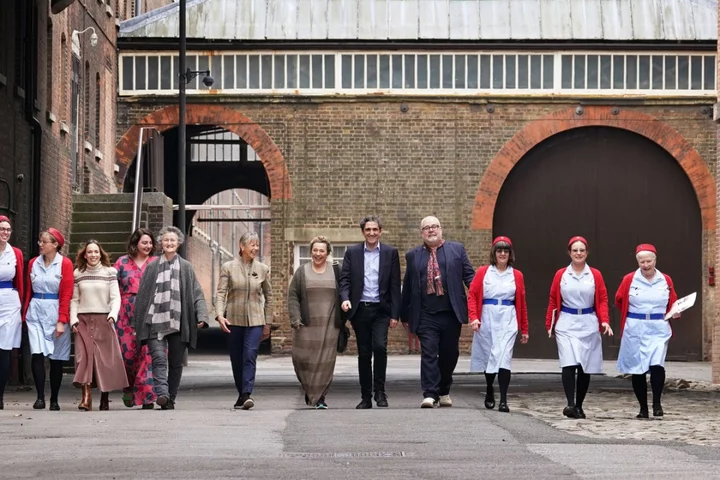
Call The Midwife ‘should come with a health warning’
Popular TV show Call the Midwife needs a health warning, academics have said. Experts from King’s College London and the University of Liverpool said television programmes showing “inaccurate birthing practices” should require safety recommendations for viewers to avoid misinterpretations by the public. Researchers analysed 87 births shown in 48 episodes of BBC’s Call The Midwife, This Is Going To Hurt and Channel 4’s One Born Every Minute. They compared how the depiction of these births compared to modern guidelines from the National Institute for Health and Care Excellence (Nice). The births largely compared favourably to modern care guidance, the authors found. We saw too early cord clamping in most televised births but no programme informed viewers about the safety aspects Prof Susan Bewley But a third of the time depictions of midwives and doctors clamping the umbilical cord were shown inaccurately or dramatised, according to the paper which has been published in the journal JRSM Open. Researchers said that without a safety warning to inform viewers otherwise, the general public and healthcare professionals could think the clamping practices they see are correct. Nice guidance states that women should not have the umbilical the cord clamped earlier than one minute after the birth unless there is concern about cord integrity or the baby’s heartbeat. But the academics found that in 21 instances clamping appeared to happen immediately or too early. Susan Bewley, professor emeritus of obstetrics and women’s health at King’s College London, said: “Millions of viewers watch programmes like Call The Midwife every week to be entertained but the line between fact and fiction is blurred. “We are impressed that UK television shows have accurately depicted some changes in childbirth over the last century, but on the other hand they have also provided the public with a picture of poor-quality care when it comes to clamping during childbirth. “These inaccurate depictions could influence how people see real-world care. “We saw too early cord clamping in most televised births but no programme informed viewers about the safety aspects. “When showing outdated practices, broadcasters have a public health duty to inform viewers that this immediate medical intervention is no longer recommended. No broadcaster would show the sleeping positions associated with cot-death without comment.” Andrew Weeks, professor of international maternal health at the University of Liverpool, added: “Health professionals know that midwives and doctors should not interrupt the flow of blood to the newborn baby nor separate the mother and baby without a pressing reason, and yet this is what is being shown on popular television programmes as common practice. “Incorrect depictions like this, however routine, can lead to misinterpretations of correct practice by the public. “This illustrates the need for safety recommendations when TV dramas show birthing practices and procedures that are outdated and inaccurate.” A spokesperson for Call The Midwife said: “Call The Midwife is a drama, not a documentary, and is set half a century ago. “It is highly accurate to the period it depicts, and shows how childbirth has changed radically over the years.” The study was published as the charity Lullaby Trust, which raises awareness of sudden infant death syndrome (SIDS), highlighted infection prevention among newborns. It said that parents should avoid letting other people kiss their baby and should always ask people to wash their hands before touching a newborn. “Even infections that cause mild symptoms such as a common cold in adults and older children can be life-threatening for babies,” said charity chief executive Jenny Ward. Read More Halloween: 10 wicked ways to kit out your haunted house Black magic: Go back to black this season with the catwalk-inspired trend How to prep your home for when the clocks go back Menopause campaigner Mariella Frostrup: ‘I look forward to a future where women gradually stop feeling so ashamed’ More girls miss school and college due to their periods than colds, survey finds More girls miss school and college due to their periods than colds, survey finds
2023-10-19 16:50
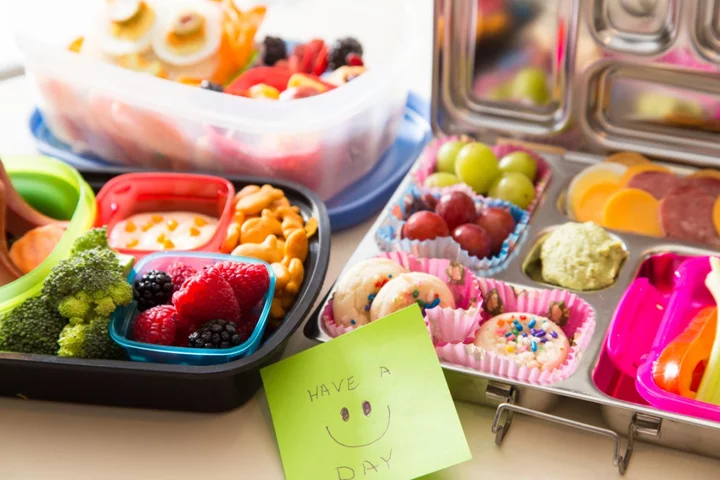
My kids don’t have sushi in their packed lunches – does it make me a bad mother?
I’m standing outside my local cafe in west London, looking bedraggled as I’ve been up since 6.45am making the dreaded school packed lunch. It’s nothing exotic – margherita pizza for Lola, who is a fussy eater, and plain pasta with cheddar cheese and corn on the cob for Liberty. There were all the snacks to pack, too – sadly, no chunks of carrot, just Pom-Bears and breadsticks. I am buying a croissant to add to one of the lunch boxes when I bump into the mum of one of my daughter’s friends. “Oh darling,” she tells me, “it’s all ‘white food’. Not good.” I shrug my shoulders knowingly, then stupidly ask her what’s in her kids’ packed lunches. “Sushi bento box,” comes her instant reply. “Crudites and organic hummus. Japanese panda crackers. Seaweed crackers. Dim sum. Oh, and sandwiches cut into little shapes – I do hearts and stars.” Right. That’s a good start to my morning; I now feel totally inadequate. When it comes to my children, I am a slave to the packed lunch. But gone are the days of stuffing a hard-boiled egg, a jam sandwich or processed cheese triangles into a box – as was the case when I was a child. Even apples have been voted a prehistoric lunchbox item by 17 per cent of parents. Instead, packed lunches are now a status symbol. The actor Hilary Duff, for instance, gives her son caviar for a snack – and it’s not that unusual. One in 10 parents (9 per cent) choose sushi and, according to a recent survey by Amazon Fresh, 26 per cent of parents take a photo of their children’s packed lunch for Instagram. A third (33 per cent) have also admitted they’ve taken a sneak peek inside another child’s lunchbox – and believe me, it’s often to silently snack-shame another parent. I can’t help but wonder if food and snacks are a kind of modern litmus test of parenting. But does it really make you a better parent if you give your child home-cooked wild keta salmon and wholemeal rice in a thermal container for lunch? The playground politics of packed lunches are complex. Parents are constantly criticised for sending inappropriate lunches to school. The TV chef Jamie Oliver once said unhealthy packed lunches are tantamount to child abuse. At the other extreme, parents are finding the time to stamp cucumbers with flowers and dice dried herbs into them for their kid’s bento boxes – then post them online. There seems to be no middle ground. Christina (not her real name) is a 40-year-old PA and tablescaping specialist whose child attends a prep school in west London’s Notting Hill. She makes all of her daughter’s packed lunches from scratch, and it’s always organic produce. “I always wanted to go that extra mile,” she tells me. “My motivation to do this was never to be ‘Queen Bee mum’ – it was to make my daughter happy and proud of me.” The “presentation” and “the taste” of the packed lunches, she says, is “super important” – to such an extent that it needs to be “Instagram-worthy” and “fun” in order to encourage her daughter to eat healthily. One of her lunch box specialities, she adds, is mini American hot dogs “decorated with a little flag and a drizzle of ketchup”. “I know it is always going to be flagged by other mothers because the school is very competitive,” she continues. “This dish goes around the mums like wildfire because mums always want to outdo other mums.” If I put out a post saying how much fibre children should be having, I get people replying saying that ‘it’s unrealistic’ and ‘we can’t do that as well as everything else’ when it comes to kids’ foods. It ends up with parents pitting themselves off against one another with food Charlotte Stirling-Reed, child and baby nutrionist While school playground rivalry among parents used to be about pigtails and bows in your children’s hair, Christina says, now it’s about lunch and snacks. “Kids have a much more sophisticated palate,” she explains. “They’re exposed to a lot more than a ham and cheese sandwich. The playing field has widened, and the bar has been set higher due to social media, and Deliveroo and Uber Eats – everything has become more instantaneous.” For other parents, it’s about making a packed lunch as wholesome as possible – something my children would scoff at. Ella Mills, the founder of the plant-based food brand Deliciously Ella, tells me she has found “batch cooking” easiest for her daughter’s packed lunches at nursery. “It’s a real rush getting everyone dressed, ready and out of the door each morning,” she says. “Plus, thinking of something to cook at 7am that’s got no nuts, no sesame in it [due to possible nut allergies], that I’ll know they’ll eat, and that doesn’t take a little while to make. So I make huge batches of veggie bolognese, bean chilli or sweet potato and chickpea stews plus big batches of grains, then simply heat a portion up and pop it in a thermos. Something that’s pre-made makes a world of difference.” Other parents call in the professionals. Chef Meryem Korkut Avci of Mary’s Mobile Chef Services does “meal preps” for elite customers in west and north London. She sends over an ingredients list and will then come to your home once a week and cook for the whole family – a two-hour session is £120 for six dishes (on the seventh day, her clients usually get a takeaway). For packed lunches, she says gluten-free muffins are popular. “Also egg or chicken fried rice, chilli con carne with tortilla, little mini puff pastry rolls with cheese – or sausage rolls.” She’ll even wash up – and says clients use her because “they don’t have time” or are “bored of their own food”. Dr Megan Rossi, a gut health scientist, bestselling author and founder of the website The Gut Health Doctor and The Gut Health Clinic in London, says an ideal packed lunch would contain something from each of the super-six plant groups: “Legumes (such as chickpeas), vegetables, whole grains (such as oats and barley), fruit, nuts and seeds and herbs and spices. Hitting all these is a tricky one but for optimal health, the goal is for them to have at least one from each of these most days. It’s a great target to have in mind!” She advises “hiding legumes and whole grains in sweet treats like black bean brownies with porridge oats,” and says that “while not a long-term strategy to keep plants a secret, it can help build some confidence and comfort with those plants (as well as training childrens’ taste buds) for you to reveal when the time is right.” For chocolate lovers – like my daughter, Lola – Dr Rossi also suggests “making your own chocolate bars with dried fruits, popcorn, seeds and nuts included for extra dietary fibres and a more satiating treat”. I personally can’t see how I would fit that into my schedule. But for many parents healthy eating is a full-time job. Children may need to be offered a specific food “around 10 times” before they accept it, according to research, while Dr Rossi adds that it means nothing to a child if you merely tell them food is healthy or unhealthy. “Try explaining to them from a young age about the importance of their gut microbes,” she says. “Tell them they need to feed the little pet bugs in their tummy with broccoli, for instance, to help keep them strong.” I often feel ashamed that Lola is a fussy eater – though I find solace in the fact that her younger sister isn’t. Dr Rossi claims that what mums-to-be eat during pregnancy may also affect the kind of food your child will have a taste for. “That could play a part with fussing eating,” she says, but adds that she’s not keen on “mum guilt”: “Pregnancy is hard enough without the added pressure of nutrition.” Charlotte Sterling-Reed, “The Baby and Child Nutritionist”, runs a fussy eater course, and assures me that “parents are not bad parents if they are struggling with a fussy eater at home”. She says she is currently witnessing a backlash from “defensive parents” who are fed up with being told to live up to the “ideal” of being a perfect parent. “If I put out a post saying how much fibre children should be having, I get people replying saying that ‘it’s unrealistic’ and ‘we can’t do that as well as everything else’ when it comes to kids’ foods,” she says. “It ends up with parents pitting themselves off against one another with food.” An extravagant lunchbox is also not realistic for the majority of parents, she adds, “whether working or not, and nor should it be – there is a way to find a balance”. She says that a middle ground is possible. “As parents, [we can] pick something that is balanced but that also works for the family situation. This constant comparison between two extremes on social media makes us feel like we are failing in multiple aspects of parenting.” I don’t think I’m ever going to be posting my kids packed lunches on Instagram. I also know that sliced pepper fingers won’t get eaten even if I arrange them in the shape of a smiley face. More than anything though, I won’t feel guilty about my kids’ food habits any more, or the lengths I sometimes go to to get them to eat healthy – I once told my daughters that if they didn’t drink their freshly squeezed orange juice, their legs would fall off. And, you know what, it worked! Read More Keir Starmer is keeping his children out of the public eye – but that won’t stop them being privileged I’m a jellyfish parent – my run-in with a tiger mum was terrifying Kate Moss credits her stress-free life to ‘moonbathing’ – can eccentric wellness regimes help me too? Vasectomy and British men in their twenties: ‘Young, none and done’ Why taking a mental health day could be bad… for your mental health What the world’s happiest children tell us about where Britain is going wrong
2023-10-19 13:57
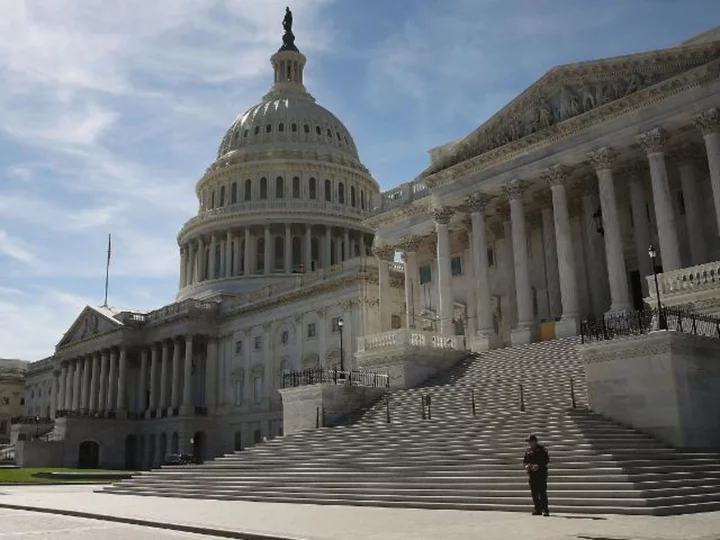
Republicans who voted against Jordan's speakership bid report menacing calls and threats to their offices
Several Republicans who opposed Rep. Jim Jordan's House speakership bid said they are experiencing angry calls, menacing messages and even death threats since casting their votes, increasing the already tense and chaotic atmosphere in the GOP as they struggle to elect a speaker.
2023-10-19 12:16

Delta Rolls Back Loyalty Program Changes That Steamed Travelers
Delta Air Lines Inc. is rolling back some of the widespread and unpopular changes to its SkyMiles loyalty
2023-10-19 04:57

Adele reveals she’s three months sober after being a ‘borderline alcoholic’ in her 20s
Adele has revealed that she’s three months sober after a period of drinking heavily in her 20s. On Friday 13 October, the “I Drink Wine” singer admitted onstage that she recently gave up alcohol after seeing audience members drinking “a pint” of whiskey sour during her Las Vegas residency show. In a video shared on X, formerly known as Twitter, she told concertgoers at The Colosseum at Caesars Palace: “I stopped drinking… maybe, like, three and a half months ago.” However, Adele - whose full name is Adele Adkins - acknowledged that it hasn’t been easy refraining from alcohol. “It’s boring. I mean, oh my God, it’s boring,” she continued. “I was literally borderline alcoholic for quite a lot of my 20s, but I miss it so much. I cut out caffeine [too].” The singer jokingly added: “So, enjoy your whiskey sour. I’m very, very jealous.” Adele, 35, previously addressed her relationship with alcohol during a performance in March, when she detailed her pandemic drinking habits. “I remember when I came here in Covid, in lockdown. It was 11 am, and I was definitely, like, four bottles of wine in - like we all were,” she revealed, per the Evening Standard. “I said in 2020 that I wanted to put my album out. And we were all at home just drunk basically.” In an interview with Vogue in October 2021, the “Hello” singer admitted that she has a very “close relationship” with alcohol. She explained to the outlet: “I was always very fascinated by alcohol. It’s what kept my dad from me. So I always wanted to know what was so great about it.” Perhaps the singer has recently cut out drinking because she’s been planning a week of celebrations, in honour of her son Angelo’s eleventh birthday on 19 October. She shares Angelo with her ex-husband, Simon Konecki. “This week my son turns 11 years old,” she told the audience on Friday. “Can you believe that? We have got a busy week coming celebrating him. He is very much like me because I take my birthday very seriously.” “So, it is a whole week or a month celebration, which I think everyone should treat their birthday like,” she added. The “Rolling in the Deep” singer noted that her only child “seems to have adopted” very similar habits as her own when it comes to birthday celebrations. “He is like, ‘Can I do this and do that?’” she explained. “I am like, ‘That is very expensive. You are 11. Shouldn’t we be having a tea party still?’” “But you know, 11-year-olds in 2023 are, like, going on 25,” Adele continued, as she joked that her update for next week’s Las Vegas show “will be being a bullied mother”. Between songs, the Grammy award-winning singer often takes moments to banter and chat with audience members, often dropping personal anecdotes and spotlighting lucky fans. Earlier this month, the singer referred to her longtime boyfriend, sports mogul Rich Paul, as her “husband” to the delight of fans. Adele’s Las Vegas residency began on 18 November 2022, and is scheduled to end this fall on 4 November 2023. Read More Adele shows off massive diamond ring amid marriage rumours with ‘husband’ Rich Paul Adele’s boyfriend Rich Paul offers advice for Taylor Swift and Travis Kelce Adele says online shopping and ‘making special time’ for boyfriend Rich Paul make her happy Adele shows off diamond ring amid marriage rumours with ‘husband’ Rich Paul Rich Paul responds to Adele marriage rumours after singer calls him ‘husband’ Kourtney Kardashian reveals she and Travis Barker conceived son without IVF
2023-10-19 04:25
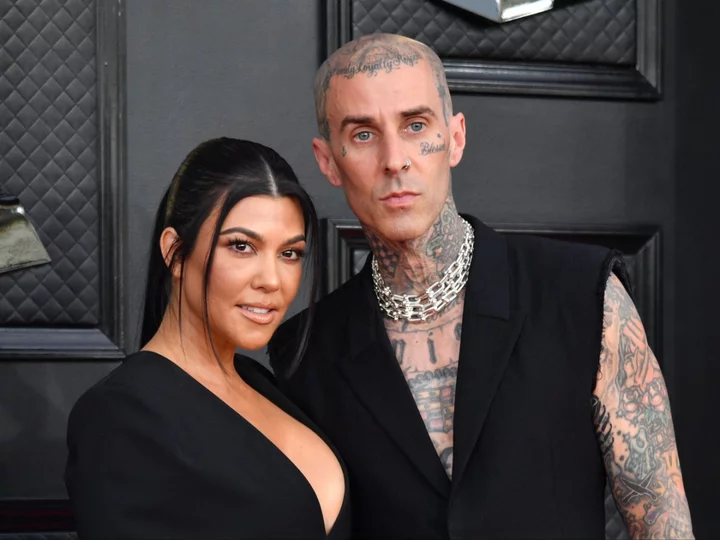
Kourtney Kardashian reveals she and Travis Barker conceived son without IVF
Kourtney Kardashian Barker has revealed that she and Travis Barker conceived their son “naturally” after a challenging journey with in-vitro fertilisation (IVF). In an interview for the November issue of Vogue, the Poosh founder candidly revealed that she and her husband were able to get pregnant without the stress caused by IVF treatments. Kardashian Barker told the outlet that she “felt really pressured and pushed into doing IVF. It went against my intuition, and I didn’t feel fully prepared for the mental or physical toll it takes.” Kardashian Barker had been documenting her IVF journey on her family’s Hulu reality TV series, The Kardashians. She paused the process in 2022 in favour of focusing on her lavish Italian wedding to her now-husband, Blink-182 drummer Travis Barker. “We just got pregnant naturally,” she revealed to Vogue. “It was an indescribable feeling. Shock, then super-happy, fear sets in, worry, but I remembered then to have gratitude.” Elsewhere in the interview, the Lemme founder discussed her life-threatening health scare when she underwent foetal surgery in September, saying: “That experience opened my eyes to a whole new world of pregnancy that I didn’t know about in the past.” “It was terrifying. And I learned that insurance typically only covers two ultrasounds when you’re pregnant, I had no idea,” she added. “I’ve always been lucky enough to do more than what insurance covers, and it’s one of those ultrasounds that saved my baby’s life.” The pair are currently expecting their first baby together. Kardashian Barker announced in June that she was pregnant by holding up a sign at her husband’s Blink-182 show in Los Angeles that read: “Travis, I’m pregnant.” The couple later revealed that they were expecting a baby boy after posting a gender reveal video on Instagram. The reality TV star is also mother to daughter Penelope, 11, and sons Reign, eight, and Mason, 13, who she shares with ex Scott Disick. Barker shares daughter Alabama Luella, 17, and son Landon Asher, 19, plus step-daughter Atiana De La Hoya, 24, with his ex-wife Shanna Moakler. Earlier this month, Kardashian Barker told Vanity Fair Italia that it was a “dream come true” to welcome a baby with her husband after such a long, painful journey with IVF. She got candid about the things she loved the most about raising a child, saying: “I love experiencing life through their eyes and doing with them all the things I did as a child. Going to Disneyland or even just touching sand for the first time.” She continued: “I love creating traditions and memories and making everyday things feel special and magical. Being able to do that now with Travis is a dream come true.” “I like being pregnant. I’m obsessed with the idea of being pregnant!” Kardashian Barker added. She maintained that she “physically” felt great, even though this pregnancy is much different than her first three. “But this time, unlike the other three, I was followed by a different group of doctors, who gave me many restrictions in the first months. No workouts, no Pilates, no caffeine and no plane trips. Even no sex!” Kardashian Barker said. “I think all this caution made me a little afraid because, in the past, I never had to be so careful.” Read More Kourtney Kardashian responds to criticism over pregnancy at 44 Khloe Kardashian confronts Kris Jenner about cheating on Robert Kardashian Sr Kourtney Kardashian and Travis Barker may have revealed son’s name at Disney-themed baby shower Kourtney Kardashian responds to criticism over pregnancy at 44 Menopause campaigner Mariella Frostrup: ‘I look forward to a future where women gradually stop feeling so ashamed’ More girls miss school and college due to their periods than colds, survey finds
2023-10-18 21:22

Kim Kardashian shares her top skincare hack
Reality TV star Kim Kardashian has revealed she likes to mix facial oil into her moisturiser to give her skin an extra 'glowy' look
2023-10-18 17:19
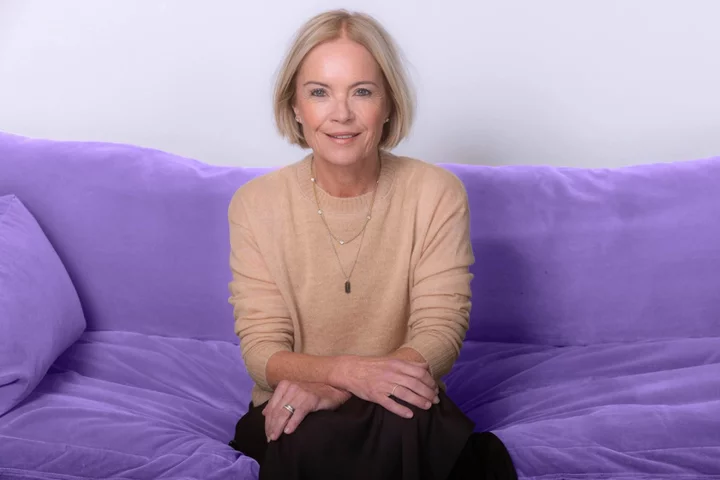
Menopause campaigner Mariella Frostrup: ‘I look forward to a future where women gradually stop feeling so ashamed’
Mariella Frostrup said she looks forward to a future where women “stop feeling so ashamed” of their bodies. The broadcaster, author and former Observer agony aunt, who has been known for her work as a menopause campaigner over recent years, also said “the world is not changing fast enough” when it comes to awareness and support for women’s health experiences. “[There has been] centuries of misinformation and misunderstanding that’s gone on around menopause. You have to look to history to see where we’ve ended up – and then in a more optimistic vein, look forward to a future where women gradually stop feeling so ashamed,” Frostrup, 60, told the PA news agency. “I mean, everything to do with women’s bodies has been a source of shame. I remember as a teenager, I was hiding my Tampax underneath cereal packets when I went to the shops to buy them, because I was so ashamed of the fact I was having a period. “You look at young people today, and I just love it when young women will announce to a roomful of people, ‘Oh, I’m on my period’. That is a great indication of the sort of liberation we need to experience around our bodies.” Frostrup, who wrote an advice column for the Observer for a decade and joined Times Radio as a presenter in 2020, co-authored the 2021 book Cracking The Menopause and is chair of the Menopause Mandate collective, whose aim is to ‘revolutionise’ the support and advice women receive through their midlife health challenges and beyond. She has now teamed up with Always Discreet on a campaign highlighting bladder leakage. Despite affecting around half of women, many (50%) are unaware this can be a common symptom of menopause, according to a survey by the brand. Of those who do experience bladder leaks during menopause, the poll (of 1,200 women) also found more than 50% are not sure they would want to discuss it with anyone, with some (19%) citing embarrassment as the reason. Frostrup, who has a teenage son and daughter with husband, lawyer Jason McCue, is keen to highlight, however, that bladder leakage is often one of the menopause symptoms women can effectively self-manage – through pelvic floor exercise. These are simple exercises that involve squeezing the muscles around the pelvis, bladder and vaginal area. The campaign sees Frostrup and TV medic Dr Philippa Kaye encouraging women to ‘Squeeze the Day’ every day, with daily pelvic floor exercises. “It’s something a lot of women live with, a lot of women don’t talk about, and a lot of women feel ashamed about – but it is actually something you can tackle, when there’s so many other symptoms women struggle to obtain treatment for,” said Frostrup. “Here’s something you can personally take agency of, and do your pelvic floor exercises. “My mum, weirdly – and I have no idea why, because I was a teenager in the Seventies – was very vocal about the need to do pelvic floor exercises. I think probably back then, it was more to do with childbirth and making that a bit easier in the future, but I was lucky in a way, as it’s something I’ve had an understanding about – although I’m still practicing how to do them without raising my eyebrows,” she added, laughing. “With so many of these things, you need a bit of levity as well. Obviously, [bladder leakage] is not the most pleasant thing – but it’s not the end of the world, and you can prevent it and actually make a difference if you’re already suffering.” Frostrup is certain that lack of awareness and support around menopause has made it “so much more difficult” for those affected, and that there’s still work to be done. “I think for an awful long time, our ignorance around the subject has made the transition through perimenopause and menopause so much more difficult,” she said. “The discovery that one in two women are going to suffer from bladder leaks – that’s an astounding proportion, particularly when you look at it as just one of 50 symptoms around menopause that women are unaware of. “I think there’s an issue in that menopause is now presented as something everybody knows about – ‘yada, yada, why is it still being talked about? You’ve got everything you wanted, now get on with it’ – and I think that’s absolutely not the case,” Frostrup continued. “Based on the thousands of women who’ve written to us at Menopause Mandate and talked to us about their symptoms, the treatment, the support they’ve been able to access, their experiences in the workplace and so on. What’s clear is that the world is not changing fast enough for these disenfranchised women. “We don’t want to rest on our laurels and just think, ‘Oh, everything’s fine now’. We’re still at base level – we’ve still got Everest to climb, when it comes to just recognition and support for women.” Mariella Frostrup has partnered with Always Discreet on their ‘Squeeze the Day, Every Day’ missions. Find out more about pelvic floor exercises via the Always Discreet Menopause Hub. (Speak to your GP if you are concerned about bladder leakage).
2023-10-18 16:18
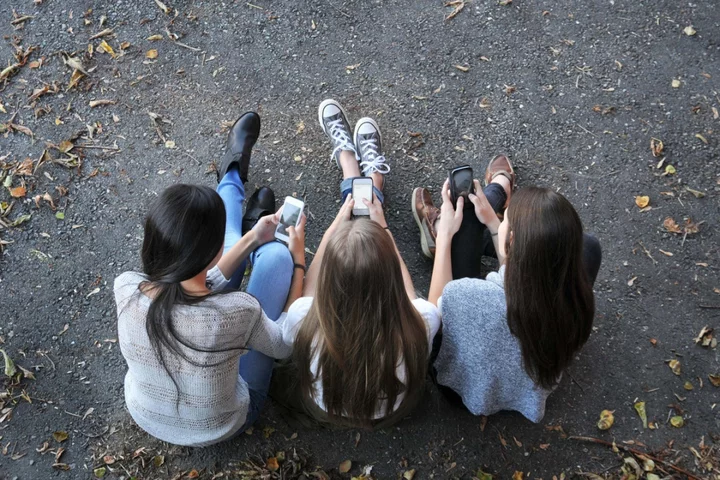
More girls miss school and college due to their periods than colds, survey finds
Girls miss more school or college days due to periods than any other reason – including colds, mental health or truancy, according to a new report. Periods cause girls to be absent from school or college for three days a term on average, compared with colds and flu (2.6 days), mental health (1.9 days) and truancy (1.2 days), the data released by washroom provider phs Group has revealed. This equates to 54 lost education days over the course of their teen years, the equivalent of 11 academic weeks. The findings form part of phs Group’s Period Equality: Breaking the Cycle report, now in its third year, for which Censuswide polled 1,262 girls aged 13-18 years across the UK. The majority (82%) cited cramps as the main reason for this, while almost one in five (19%) said they stay away from lessons because they’re embarrassed about being on their period, and one in 12 (8%) said it’s because no period products were available to them. This is despite the introduction of period equality measures in recent years, designed to improve access to free period products in education settings. “It’s important to recognise that huge advances have been made in giving girls access to free period products in schools across the UK. What we must do now is close the gap between providing schools with all the products they need and getting them into the hands of any girls that need them, for whatever reason,” said Kelly Greenaway, period equality lead at phs Group. “We know from our own data providing schools with products, that they have more than enough for their girls, so we need to tackle the misconceptions around free access to products in washrooms, and the stigma and shame that goes hand-in-hand with failing to have open conversations about menstruation.” Since the launch of the Government’s Period Product Scheme in January 2020, which provides free period products to education settings in England, via phs Group, 99% of secondary schools and 94% of post-16 organisations have ordered products through the scheme. However, the report published today highlights how periods remain a barrier to education for many girls – with the number of girls missing school due to their periods almost the same for the 2023 findings (54%) as the findings in 2019 (52%), before free sanitary product schemes were introduced. Despite the roll-out of such schemes, over half (52%) of the students surveyed said they did not find period products freely available in their school and college settings, while one in seven (14%) said they did not know if they were available. To help tackle the issue and raise awareness, phs Group is launching a new period equality podcast – called The Blobcast: Free The Period – hosted by menstrual wellbeing and confidence educator Kasey Robinson. Robinson said: “I know too well about the barriers facing so many of us when it comes to our menstrual health. It’s simply not enough to blame absenteeism figures on access to products alone. “On the ground, the story is clear: we aren’t being educated, supported and informed enough about periods. Menstruation is still a taboo subject, and our experience is a secret to keep to ourselves and something we feel forced to hide. In education settings, this is leading to more and more girls staying away from school. “Without workshops, learning resources and the support for and from teachers and caregivers, this issue will stay the same, or get worse,” Robinson added. “It should not be a revolutionary act to teach people about periods, it’s a right. We need to break the cycle of shame and encourage open and honest conversations about periods – exactly what The Blobcast is seeking to do.” The Blobcast: Free The Period launches on all free streaming platforms on October 18. More information can be found at www.phs.co.uk/TheBlobcast.
2023-10-18 13:29
